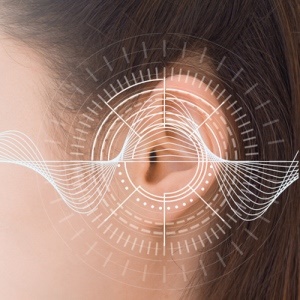
Most of us take our hearing for granted and don’t give it a second thought – until something happens to affect or compromise the status quo.
General facts
Losing our hearing can make us feel isolated and disconnected from the world, which can lead to depression and anxiety.
Hearing loss usually starts by affecting our upper pitches, which means that by middle age our upper range can drop to between 12 000 and 14 000Hz.
The human audible range is dependent on the pitch (high or low) and loudness of sound. We use Hertz (Hz) to measure pitch and decibels (dB) to measure loudness.
As far as pitch is concerned, human hearing starts at about 20Hz and ends at 20 000Hz, but our hearing is most sensitive between 2 000 and 5 000Hz.
When it comes to loudness, we can safely be exposed to sounds ranging from 0 to 85dB. Anything louder than that can eventually damage our hearing.
Here are 20 lesser known facts about hearing:
1. According to the World Health Organization (WHO), around 466 million people worldwide have disabling hearing loss.
2. Up to three out of every 1 000 children in the USA are born with some hearing loss in one or both ears.
3. More than 90% of deaf children are born to parents with no hearing impairments.
4. Among adults aged 20–69, age is the biggest indicator of hearing loss, with the greatest hearing loss in people from 60 to 69 years old.
5. In the age group 20–69, men are almost twice as likely as women to have hearing loss.
6. At the end of 2012, approximately 324 200 cochlear implants had been done worldwide. In the USA, approximately 58 000 of these devices have been implanted in adults and 38 000 in children.
7. Among the smallest bones in the human body are the ossicles in the middle ear: The incus, the malleus and the stapes.
8. Your hearing is dependent on small hairs deep inside your ear. If these hairs disappear, you will no longer be able to hear.
9. The biggest cause of loss of hearing is exposure to loud sounds (85 decibels or more).
10. Your hearing can suffer permanent damage after being exposed only once to an extremely loud noise like an explosion or a shotgun blast.
11. Your ears are never inactive, not even when you're asleep. Your brain just doesn't react to the input.
12. Ears fulfil more than one function; they also help you keep your balance.
13. Not all living creatures hear with ears. Snakes use jawbones, fish respond to pressure changes and male mosquitoes use antennae.
14. As you get older you become less able to hear high frequencies. Some hairs begin to break down which reduces your ability to hear high frequency sounds.
15. Earwax catches dirt and debris to protect your inner ear. It has a purpose, and unless there's a reason to remove it, should just be left alone. Excess earwax normally makes its own way out of the ear canal.
16. Dolphins do not have ears. Instead, they rely on eardrums located outside their bodies. They also use sonar, or echolocation, to enhance their already superior hearing abilities.
17. Dogs can hear frequencies way above humans. That's why they know you're home long before anyone else.
18. Cats are able to hear higher frequencies than both humans and dogs. Cats can hear sounds almost two octaves higher than we can. Their ear muscles also allow them to rotate their ears up to 180°.
19. Monkeys' hearing is slightly less acute than that of humans at frequencies below 8 000Hz, but extends up to 45 000Hz, which is an octave above the upper human limit.
20. Elephants are tuned into frequencies 25 times lower than humans. They can also pick up sounds through their feet and trunks.
Image credit: iStock




 Publications
Publications
 Partners
Partners



















